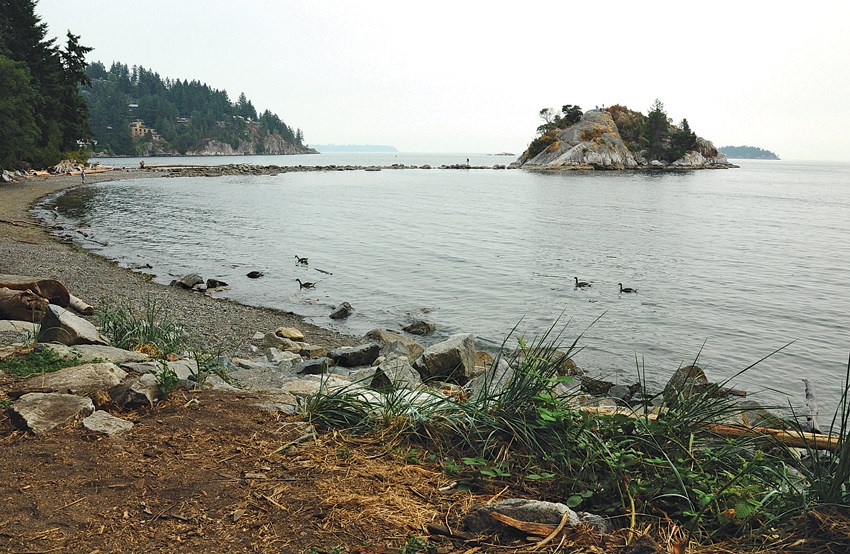Two men have been fined a total of $6,500 for illegally catching rockfish from a protected area off West Vancouver.
The two were caught on Aug. 24 after a member of the public spotted them casting their lines from the rocks in Whytecliff Park. Close by was a sign declaring “No fishing” in multiple languages.
A fisheries officer on patrol found the men had already caught four of the protected rockfish.
Andrew Yip, 32, pleaded guilty to fishing during a closed time and fishing without a valid tidal waters sport fishing licence and under the BC Sport Fishing Regulations. He was fined $3,500 for the two charges.
His uncle Yu Ye, 52, pleaded guilty to one charge of fishing during a closed time and was fined $3,000. He also received a one-year ban on fishing and had his fishing gear seized.
The area around Whytecliff is closed to fishing year-round.

Rockfish are a highly sensitive species that were badly threatened by overfishing before receiving federal protection in the 1980s.
“The near-shore species live in the same rock pile for their entire life, which may be a lot longer than we live. They go back for over a century,” said Jeff Marliave, senior research scientist with the Vancouver Aquarium.
And because it takes decades for them to reach sexual maturity, any attempt to restore their numbers would take another lifetime.
“They need a chance to live out their life and it’s too easy with these rockfish species to completely fish out a reef and keep it down,” Marliave said. “They’re shooting blanks in early years of reproduction. That’s why they need a whole century to hit the right year where they get good survival.”
Rockfish’s swim bladders are highly susceptible to even small changes in barometric pressure, meaning even a catch-and-release would likely be fatal. “It blows up like a balloon and pops their eyes out when you bring them up,” Marliave said.
Since the feds banned fishing off Whytecliff, there has been a marked turnaround in the rockfish population – although we’re still a long, long way from being able to fish them out again, Marliave said.
“After a couple decades of protection, the average copper rockfish in Whytecliff Park is sexually mature and there are some big ones, which is good. We’re slowly, slowly getting back to where the populations have a better chance of producing offspring that will survive in a given year.”
The federal Department of Fisheries and Oceans asks for anyone who spots illegal fishing to report it at their toll-free violation reporting line at 1-800-465-4336.
“The Government of Canada is committed to safeguarding the long-term health and productivity of Canada’s fisheries resources, and the habitat that supports them, for generations to come. Fisheries and Oceans Canada has a mandate to protect and conserve marine resources and to prosecute offenders under the Fisheries Act,” stated a release from the department.



